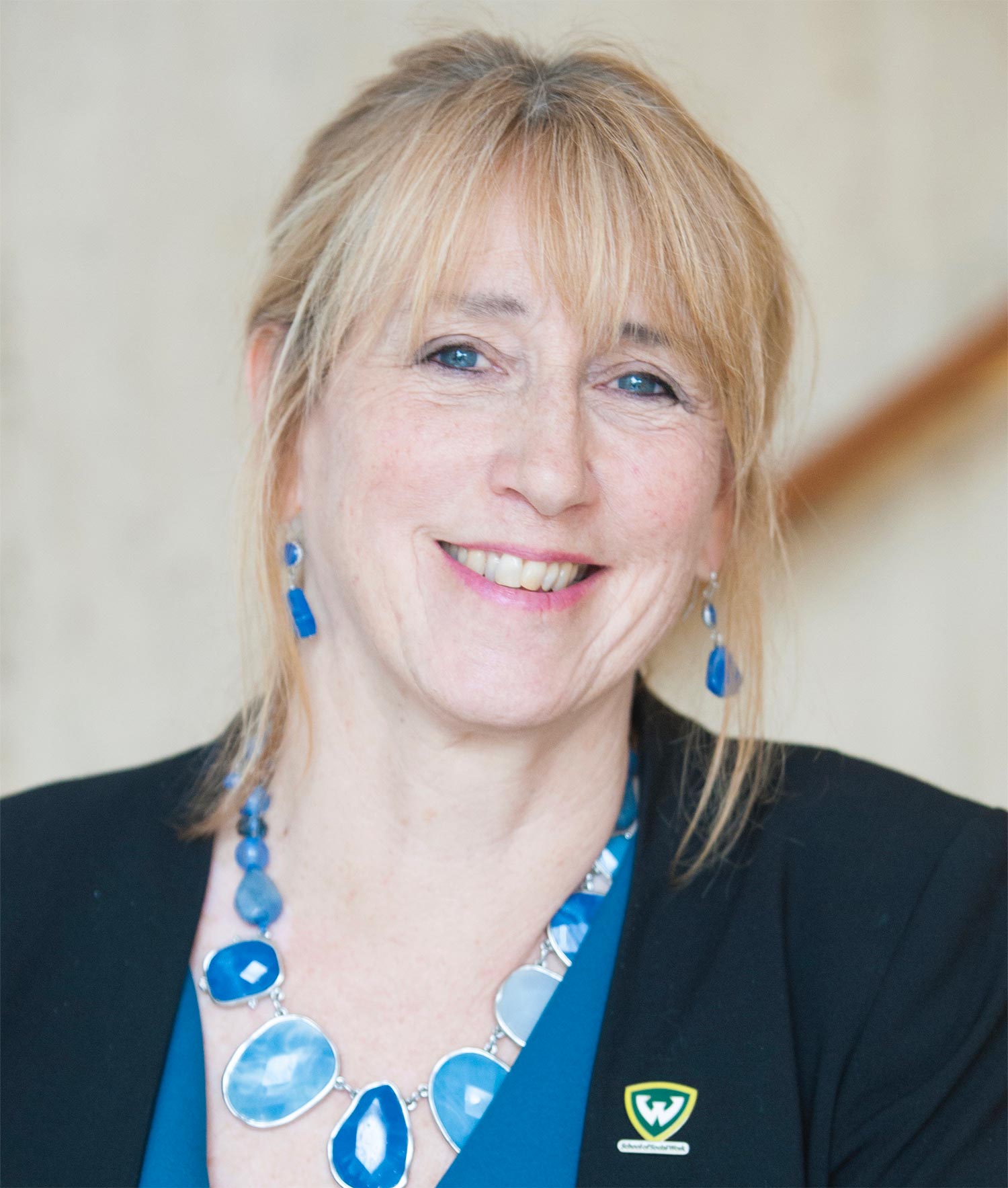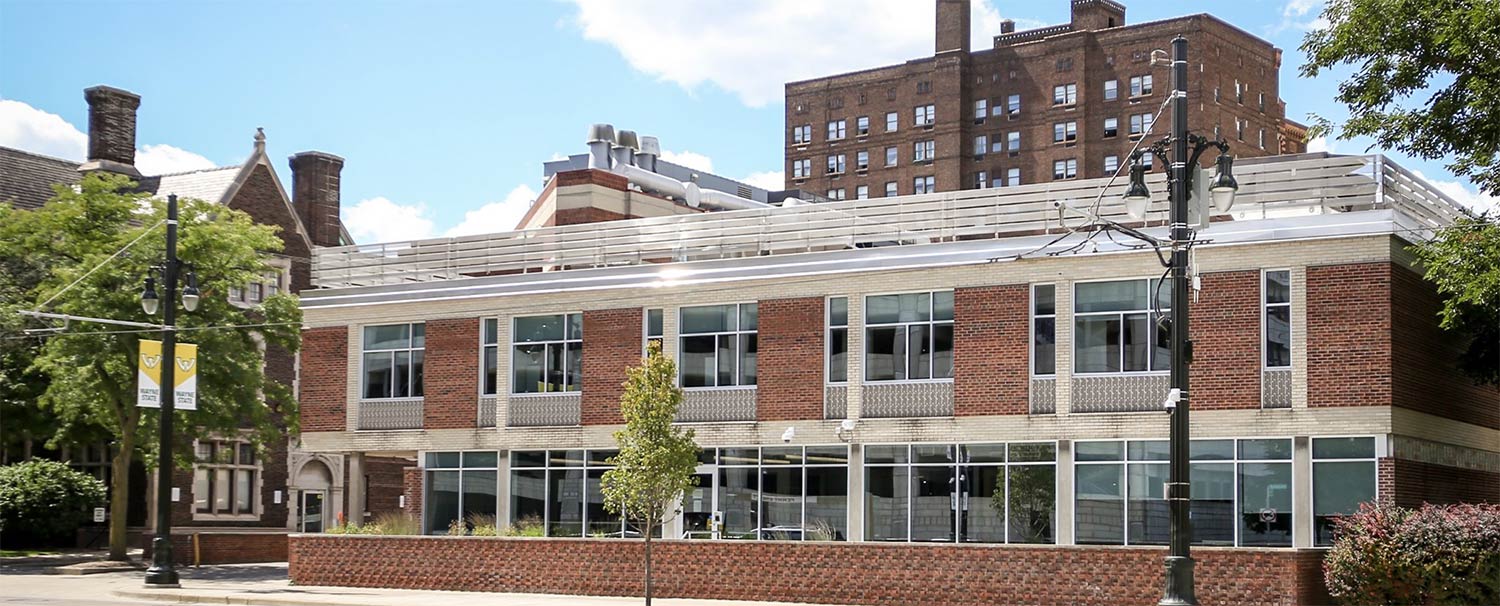
EngageD Q&A
Now, Sheryl Kubiak, who took over as the school’s dean in 2018, has plans to build on that legacy even further. Kubiak, who established the Center for Behavioral Health and Justice — a programmatic effort to facilitate conversation and decision-making in areas such as mental health, substance use disorders and criminal justice — has leaned with full force into the school’s long-standing social justice mission, tackling health disparities, challenging the school-to-prison pipeline, fostering healthy families in disadvantaged communities and confronting many other hurdles facing the city’s underserved populations. Recently, Kubiak shared some thoughts about her mission, goals and most recent triumphs.
What brought you to Wayne State?
What are your key priorities for the School of Social Work, and how do you feel these impact the work the university does in Detroit?
WSU sits in the heart of the City of Detroit. As such, we are part of the fabric of the community. Like all good neighbors, we are concerned about those around us and believe that a “rising tide lifts all boats.” That collective spirit of the university’s faculty, staff and students is the real heart of Wayne State in general, and social work more specifically. This is what makes WSU one of the best places in the country to get a degree in social work.
What are some examples of work that the School of Social Work does in the community that people may not know much about?
- Suicide prevention/intervention with youth, families and indigenous communities
- Intervention around the school-to-prison pipeline
- Environmental justice (safe water and equitable distribution of natural resources)
- Prevention/intervention of opioid use disorders in all types of places, from jails to schools to communities
- Initiatives promoting fatherhood and protecting their parenting
- Facilitating coalitions and work groups within Wayne County to change juvenile and adult criminal processing to prevent greater number of individuals from entering — or going further into — the legal system
- Supporting older Detroiters with the Party Line to ensure their voices are heard in research and to reduce social isolation and the impact of environmental change
- Interdisciplinary clinics supporting Detroiters with diabetes, older adults and those experiencing homelessness
- Holistic Defense training in partnership with the Law School

What are the biggest challenges you’ve faced so far?
Outside the university, there are social issues that have been exacerbated by the pandemic and the political landscape in the country — of course, this includes the health disparities illuminated by COVID-19, but also the racial inequity within the criminal/legal system. Social workers are, and will be, in high demand; however, as social workers, we also have to reckon with our own history and practice of sometimes being unaware of our own complicity in upholding oppressive systems.
Who have been among your biggest allies outside of Wayne State?
Within Wayne County, Chief Judge Timothy M. Kenny from 3rd Circuit Court and Judge Freddie G. Burton Jr., chief probate, have been leading efforts for county-wide change in diversion/deflection efforts. They are interested in creating systemic change and have been leading the charge. Senator Stephanie Chang is writing legislation that would create more social work presence for first response to crisis.
The foundation community has been fully behind these change efforts at the Center for Behavioral Health and Justice: Malanca Clark, Hudson-Webber Foundation; Andrea Cole, Ethel and James Flinn Foundation; Lynda Zeller, Michigan Health Endowment Fund; Heidi A. Alcock, McGregor Fund; and Sarah Wedepohl and Surabhi Pandit from Community Foundation for Southeast Michigan. It is nice to feel their support and appreciation of our efforts.
Finally, our School of Social Work Board of Visitors, led by Alice Thompson and Shirley Gray, has been such a friend and mentor to me. They are the biggest cheerleaders for the school! With their support and that of our many donors and community partners, such as William F. Pickard, we are able to provide necessary support to our students working to empower social change in Detroit.
What drove the creation of the Center for Behavioral Health and Justice?
The center focuses its work on county-level community change. We bring relevant stakeholders to the table — jail, community mental health, substance abuse, law enforcement, housing, etc. — to “map” their system to find ways people can work together to maximize resources and divert people from custody. This is a win-win for everyone around the table; however, most counties or communities are stretched for funding and resources to do this on their own. The Center for Behavioral Health and Justice provides the facilitation, data gathering, strategic planning, intervention planning/implementation and general capacity building.
Social workers are trained to work in and across many organizations and systems, but there were few social workers at this intersection between behavioral health and the criminal/legal system — and few schools of social work that train people in interventions across the criminal/legal continuum. The Center for Behavioral Health and Justice provides that incubator for training and experiential learning while the School of Social Work provides coursework, as well as the Law School program in Holistic Defense.
What have been some of its biggest accomplishments?
The Center for Behavioral Health and Justice, led by Director Brad Ray, has worked to gather evidence that diversion works in keeping people out of jail. Getting them into services has been important to improving current programs, creating new initiatives and providing information that informs policy formation.